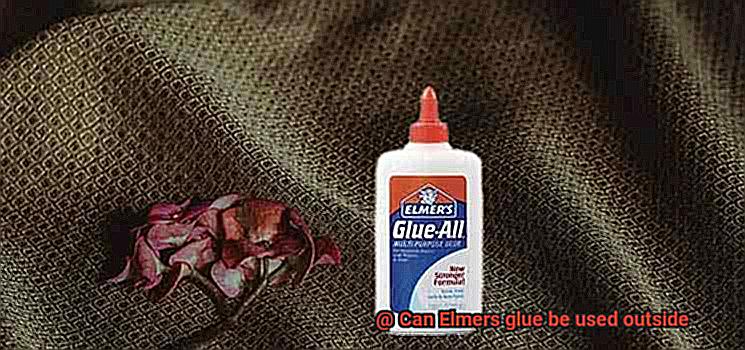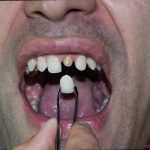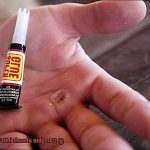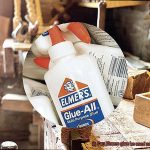When it comes to glue, Elmer’s is a name that rings with power and versatility. We all know it’s a go-to for indoor projects, but have you ever wondered if this adhesive wizard can work its magic outside?
Get ready to discover the hidden potential of Elmer’s glue as we venture into the great outdoors. In this article, we’ll unveil its lesser-known applications beyond four walls. From artsy creations to practical fixes, Elmer’s glue will become your secret weapon for enhancing your outdoor experiences.
So, lace up those hiking boots, gather ’round the campfire, and let us take you on a journey where nature meets creativity with astonishing results.
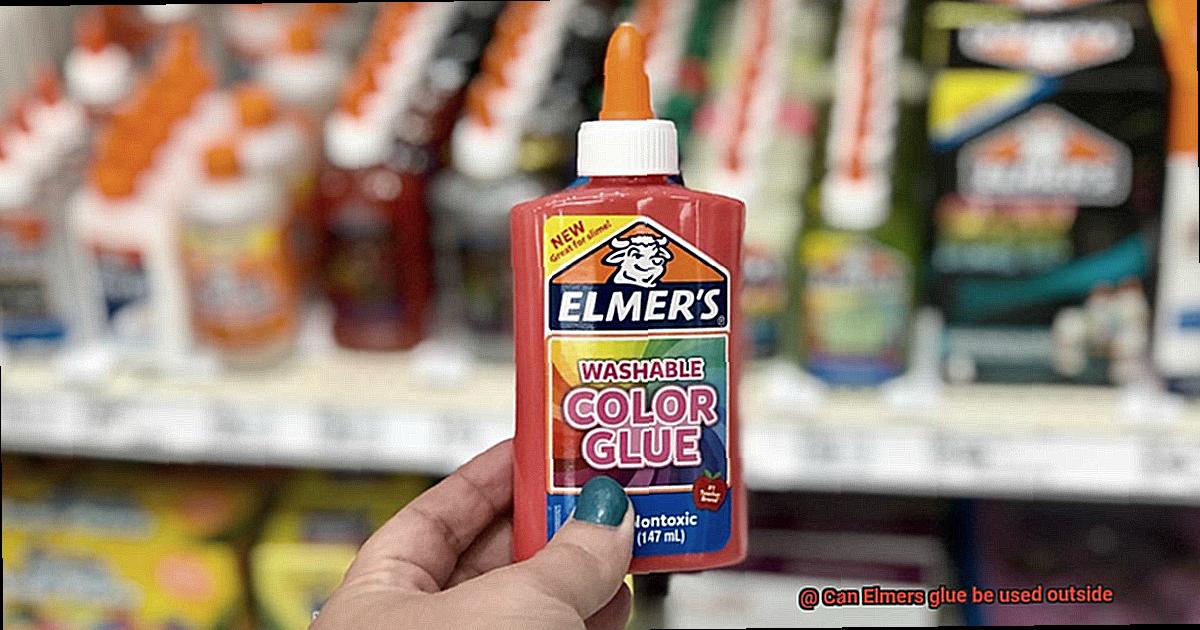
What Is Elmers Glue?
Contents
With its powerful bonding abilities and safe formulation, Elmer’s glue has become a staple in households worldwide. In this article, we will explore the fascinating properties of this versatile glue, its multitude of uses, and the precautions to keep in mind.
The Powerful Properties of Elmer’s Glue:
Elmer’s glue is a type of white glue that consists of three key ingredients: water, polyvinyl acetate (PVA) resin, and carefully selected additives. The PVA resin is the secret behind Elmer’s glue’s adhesive qualities, allowing it to bond surfaces with ease. Water acts as a medium, making the glue fluid and easy to apply. Additives like preservatives, thickeners, and stabilizers enhance the glue’s performance and durability.
Discovering Endless Possibilities:
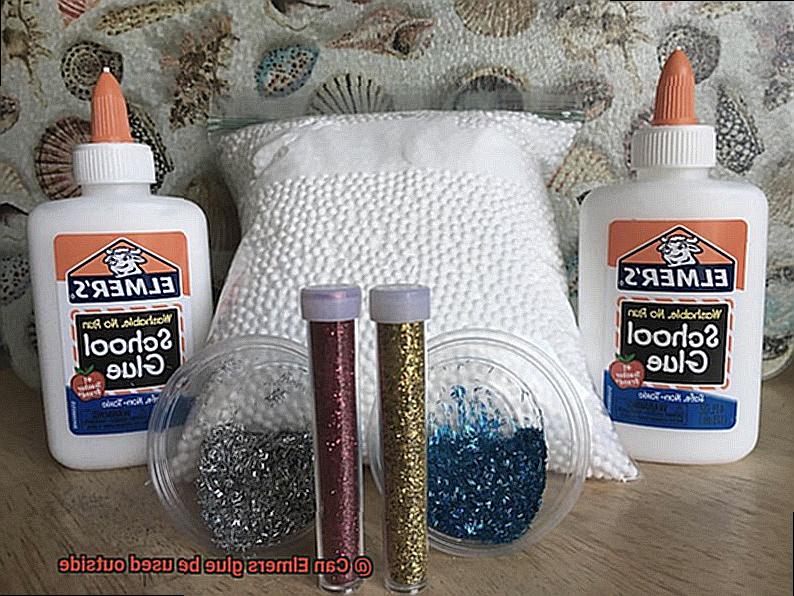
Elmer’s glue is a versatile adhesive that can be used for a wide range of projects. Here are just a few examples:
- Craft Enthusiasts: Elmer’s glue is perfect for all your paper crafts, from scrapbooking to collage-making. Its clear drying properties make it ideal for preserving memories in beautiful albums or creating stunning works of art.
- School Projects Made Easy: Whether it’s building a diorama or designing a poster, Elmer’s glue ensures that every student project stays intact. Its reliable bonding ability makes it a must-have in every classroom.
- Woodworking Wonders: Elmer’s wood glue is specifically formulated for woodworking projects. It creates a strong bond between wooden pieces and can even fill small gaps, ensuring your creations stand the test of time.
- Fashion Forward: Elmer’s fabric glue is perfect for attaching fabric to fabric or fabric to other materials. It can withstand washing and drying, making it a valuable tool for repairs or adding embellishments to clothing.
Safety First:
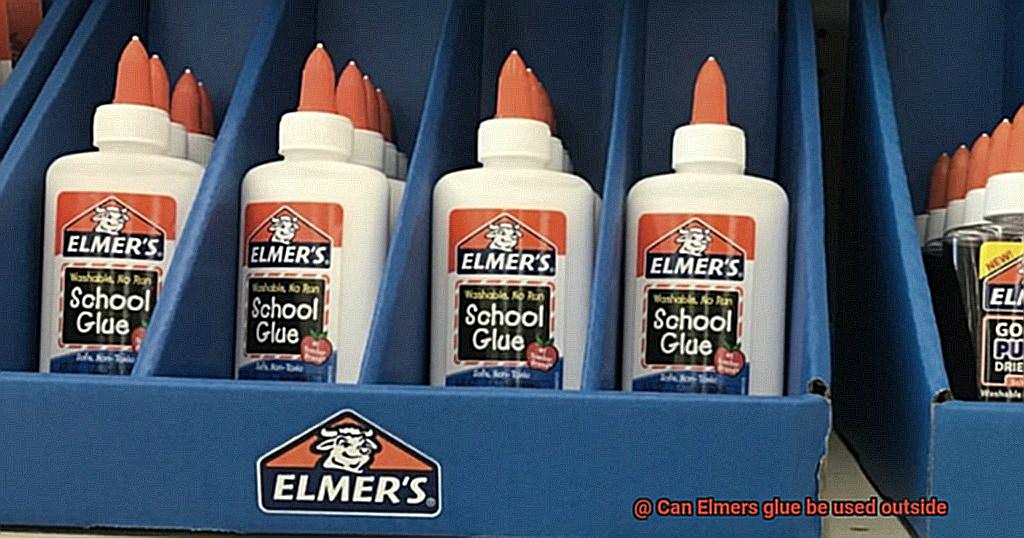
Elmer’s glue is generally non-toxic and safe for use by both children and adults. However, it is crucial to remember a few precautions. Avoid ingestion and keep glue away from eyes. In case of accidental ingestion or eye contact, seek immediate medical attention.
Water-Soluble Nature of Elmers Glue
Elmer’s glue is a beloved adhesive that has graced crafting and household projects for generations. Its ability to dissolve in water makes it a go-to choice for many, but let us delve deeper into its implications, particularly for outdoor use.
Easy Cleanup:
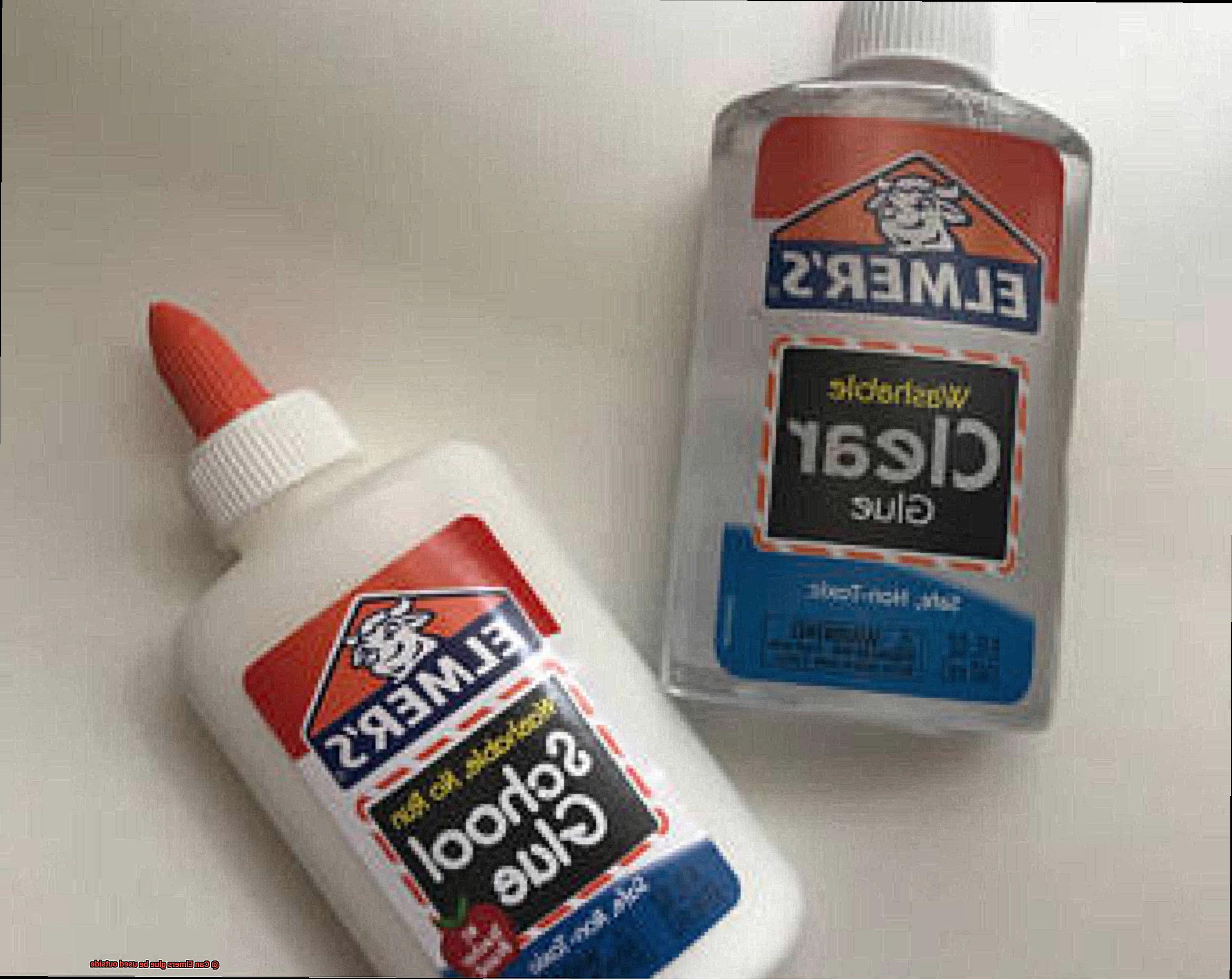
The water-soluble nature of Elmer’s glue is a true blessing for meticulous crafters. When this remarkable glue encounters water, it undergoes a magical transformation, softening and dissolving effortlessly. Sticky messes on your work surface or your little one’s fingers become mere memories with just a wipe of a damp cloth or a rinse under running water.
Non-Toxic and Child-Friendly:
Rejoice, parents. Elmer’s glue is non-toxic and completely safe for children to use. With just water, you can wash away any remnants of glue from your child’s hands or clothes without any worries. It’s perfect for those delightful school projects or creative endeavors involving our little ones.
Outdoor Use Limitations:
Yet, let us not forget the limitations imposed by the water-soluble nature of Elmer’s glue when it comes to outdoor use. While it may provide temporary adhesion for certain outdoor crafts or decorations, it is not a steadfast solution due to its affinity for water. Moisture and humidity can weaken or dissolve the glue, causing your magnificent creations to lose their integrity and fade away like morning dew.
Specialized Outdoor Adhesives:
Fear not. For outdoor projects that demand a resilient bond in wet or damp conditions, there exist specialized outdoor adhesives. These exceptional adhesives are crafted with the elements in mind, formulated to withstand water, moisture, and other environmental factors. They offer a reliable solution that will keep your creations intact come rain or shine, standing tall against the forces of nature.
Temperature Range for Elmers Glue Bonding
Whether you’re a DIY expert or a crafting connoisseur, understanding how temperature affects glue bonding is essential for successful projects. So, grab your glue guns and let’s delve into the world of optimal temperatures for Elmer’s glue bonding.
The Goldilocks Zone: Temperature Matters
In the quest for the perfect bond, finding the ideal temperature sweet spot is crucial when working with Elmer’s glue. Too hot or too cold, and your bond may suffer. So, what’s the magic number? Experts recommend using Elmer’s glue in temperatures ranging from 50°F to 85°F (10°C to 29°C) to achieve optimal bonding results.
Chilling Effects: Cold Temperatures
Heat Wave: Hot Temperatures
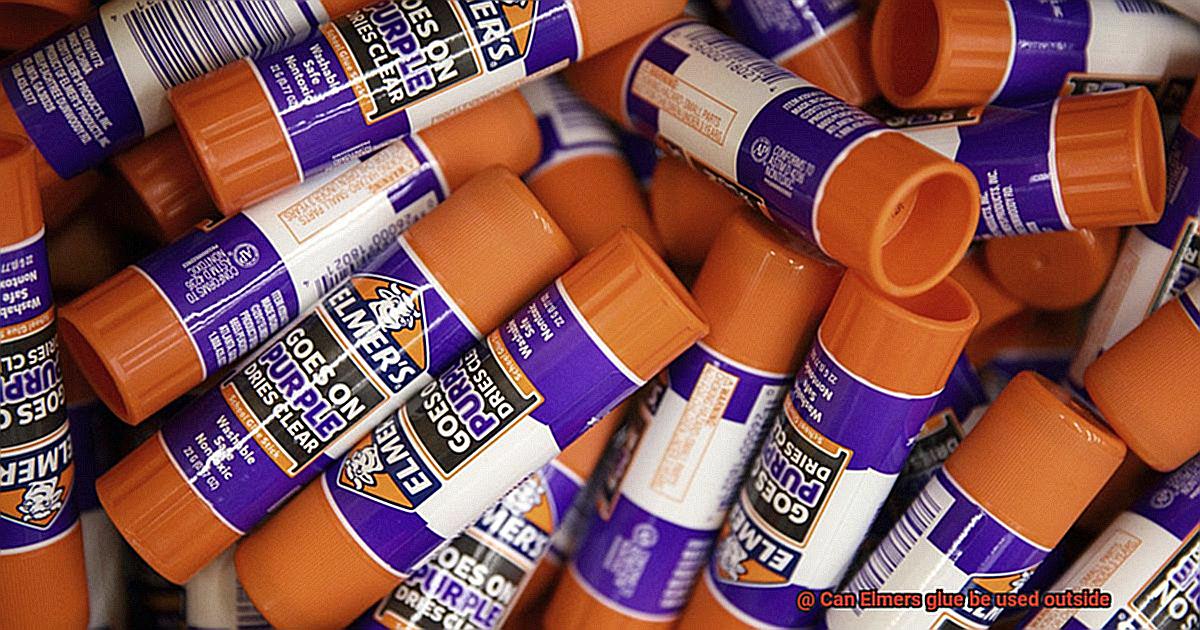
Fast forward to a scorching summer day where the sun beats down relentlessly. While you soak up some rays, beware of your glue drying too quickly under the heat. Excessive heat can render Elmer’s glue brittle over time, compromising its adhesive properties. Remember, patience is key when gluing under the sweltering sun.
Beyond Elmer’s: Tailored Solutions
For outdoor projects that brave the elements, consider exploring specialized outdoor adhesives or sealants. These heroes of the crafting world are designed to withstand extreme temperatures, providing superior resistance to moisture and weathering. They stand as the glue superheroes, ready to tackle any challenging outdoor endeavor.
UV Rays and Elmers Glue Performance
Today, we embark on a voyage to uncover the profound effects of UV rays on this renowned adhesive. Whether you’re an avid DIY enthusiast or a seasoned crafter, comprehending the intricate relationship between UV rays and Elmer’s glue is paramount to safeguarding the longevity of your projects.
Vulnerability of Polyvinyl Acetate (PVA) Glue:
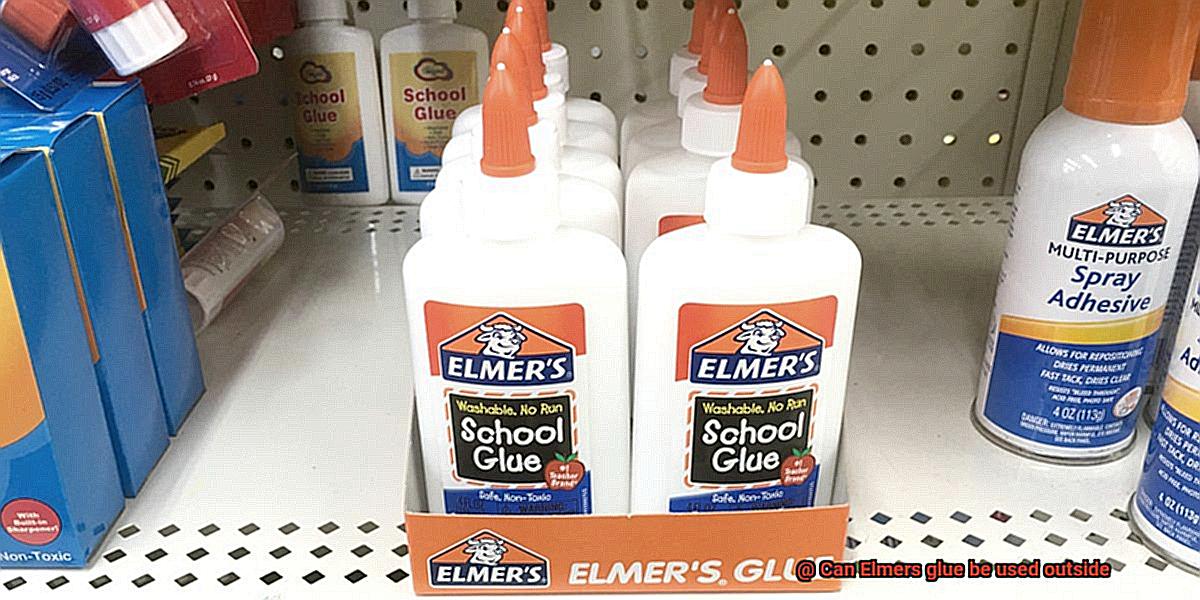
- At the heart of Elmer’s glue lies PVA, a material exquisitely sensitive to UV damage.
- Extended exposure to sunlight can induce degradation, discoloration, and fragility in the adhesive bond.
Safeguarding Techniques for Outdoor Use:
- When employing Elmer’s glue outdoors, meticulous consideration of UV ray exposure becomes indispensable.
- Application of a protective shield: Employ transparent sealants or varnishes exclusively crafted to repel UV rays. This impenetrable barrier fortifies the glue against solar radiation, effectively extending its lifespan.
- Selection of the perfect Elmer’s glue variant: Certain formulations exhibit superior resistance to UV rays. Peruse product labels or consult adept professionals at local art supply stores for expert guidance.
Limitations of Protection:
- Despite implementing preventative measures, protracted exposure to sunlight can still exert adverse effects on Elmer’s glue performance.
- Avoid protracted outdoor applications persistently exposed to direct sunlight.
Embracing Alternatives:
Protective Sealant as a Solution
We have a solution that will make Elmer’s glue as tough as nails for your outdoor adventures. Enter protective sealants, the unsung heroes of the crafting world.
You see, Elmer’s glue, while fantastic for many indoor projects, is simply not designed to withstand the harsh elements of the great outdoors. When exposed to moisture, it can become as soft and pliable as a fresh-baked cookie, losing its adhesive properties faster than a popsicle on a hot summer day. But don’t fret. With the help of protective sealants, we can transform Elmer’s glue into an all-weather warrior, ready to face any challenge Mother Nature throws its way.
One option to consider is using a crystal-clear epoxy resin as a protective sealant. This magical substance can be mixed and then brushed or poured over the dried glue, creating a waterproof and durable seal. It forms a hard coating that shields your glued surfaces from moisture, UV rays, and other environmental factors. Just imagine your outdoor creations standing strong against torrential rainstorms and scorching sunbeams, defying the elements with unwavering resilience.
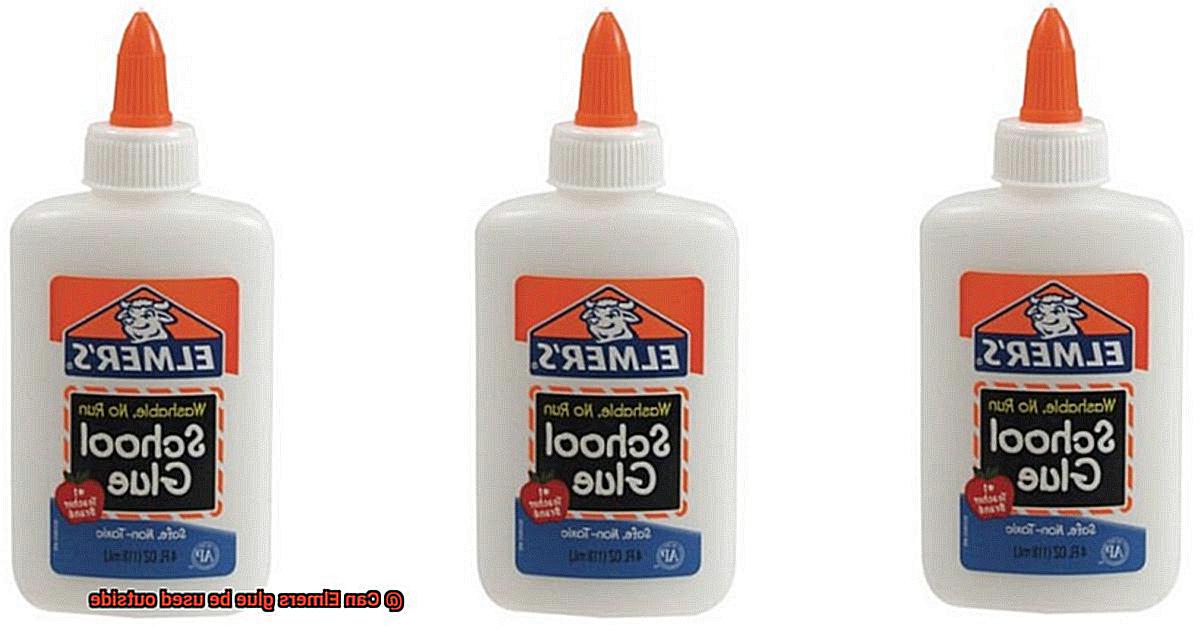
If you prefer a simpler approach without sacrificing effectiveness, there are also waterproof spray sealants available. These convenient products can be applied directly onto the glued surface, forming an invisible shield that repels water and prevents damage from moisture. It’s like giving your crafts their very own raincoat, protecting them from the harshest downpours and ensuring their longevity in any weather condition.
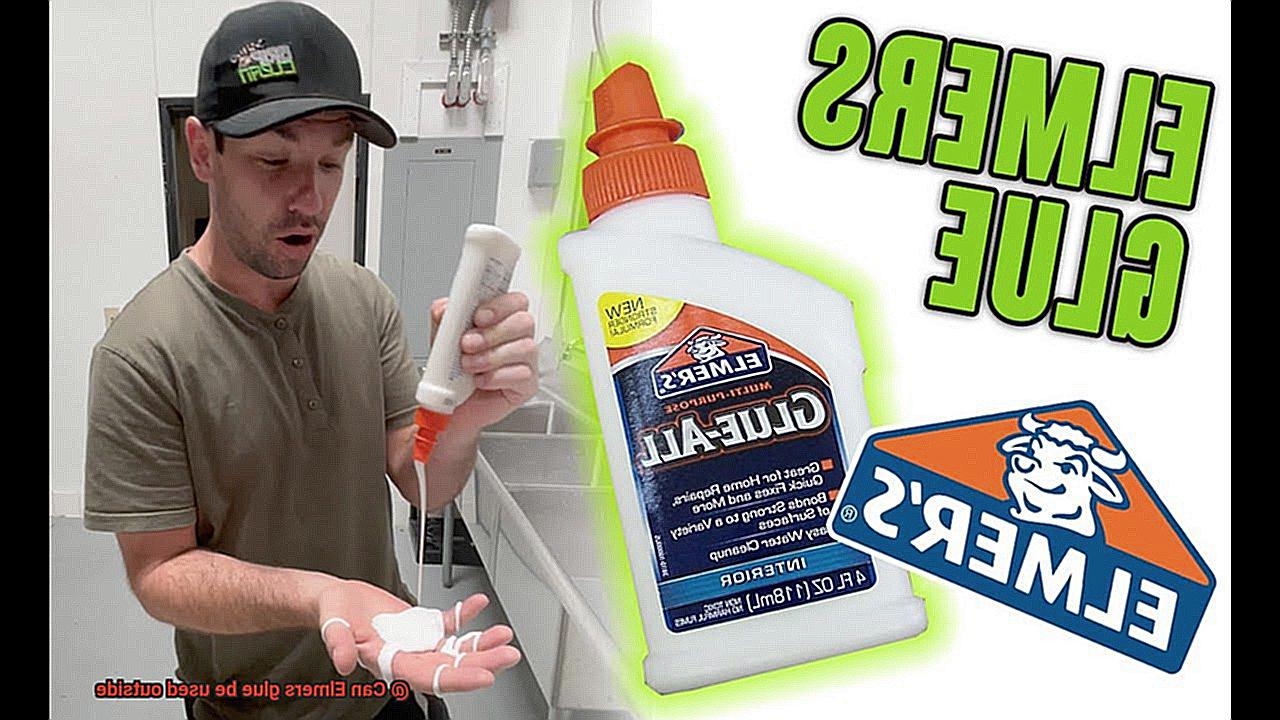
However, it’s important to keep in mind that even with the application of a protective sealant, Elmer’s glue may not be as reliable or long-lasting as adhesives specifically designed for outdoor use. If you’re working on projects that require extra strength and durability, it might be worth exploring alternatives such as weatherproof construction adhesives or marine-grade epoxy, which are engineered to withstand the toughest outdoor conditions.
Specialized Outdoor Adhesives
When it comes to tackling outdoor projects, regular adhesives simply won’t suffice. The great outdoors demands an adhesive that can withstand the harshest conditions, from scorching sun rays to torrential downpours. That’s where specialized outdoor adhesives come into play. These remarkable adhesives are specifically designed to excel in outdoor environments, providing unparalleled strength, resilience, and durability.
In this comprehensive guide, we will explore the various types of specialized outdoor adhesives, their unique features, and their myriad of uses. Armed with this knowledge, you’ll be well-equipped to conquer your next outdoor project with confidence and precision.
Epoxy Resin:
Epoxy resin reigns supreme as the go-to adhesive for outdoor enthusiasts and DIY aficionados alike. Renowned for its exceptional strength and bonding capabilities, epoxy resin can withstand water, chemicals, and temperature fluctuations with ease. It is the perfect adhesive for repairing broken sculptures or creating robust bonds between metal and wood for outdoor furniture projects.
Polyurethane Adhesive:
Flexibility and durability are the hallmarks of polyurethane adhesive. This adhesive possesses the unique ability to handle movements and vibrations that commonly occur in outdoor environments, making it ideal for construction projects involving wood, concrete, metal, and plastic. With resistance to water, heat, and harmful UV rays, polyurethane adhesive stands as a reliable choice for a wide array of outdoor applications.
Construction Adhesive:
When bonding porous materials such as stone or brick in an outdoor setting, construction adhesive is the adhesive of choice. This impressive adhesive penetrates deep into the material’s pores to create a formidable bond that can withstand moisture and temperature fluctuations. It finds common usage in landscaping projects such as securing stones in garden pathways or building sturdy retaining walls.
Marine-Grade Adhesives:
For projects exposed to water or submerged underwater, marine-grade adhesives are an absolute necessity. These specialized adhesives are formulated to resist water, saltwater, and moisture, providing a robust and waterproof bond. Marine-grade adhesives find frequent application in boatbuilding and repairing underwater structures, where their exceptional strength and resilience shine.
Also Read: Is Elmer’s Glue Waterproof?
Conclusion
In conclusion, Elmer’s glue is a versatile adhesive that knows no boundaries – it can stick together a multitude of projects, whether they take place indoors or venture into the great outdoors. With its powerful bonding abilities and safe formulation, it has become the go-to choice for craft enthusiasts, school projects, woodworking aficionados, and even those with an eye for fashion-forward endeavors.
However, when it comes to outdoor use, there are a few limitations to keep in mind. Elmer’s glue may be strong, but it does have a weakness – water. Being water-soluble means that moisture and humidity can weaken or dissolve its bond. So while it may provide temporary adhesion for certain outdoor crafts or decorations, relying solely on Elmer’s glue for long-lasting results may leave you disappointed.
Fear not. There are solutions to overcome these limitations. Enter specialized outdoor adhesives – the superheroes of sticking things together outside. These adhesives have been specially formulated to withstand Mother Nature’s wrath – from rain showers to scorching sunbeams. They offer superior resistance and durability for outdoor projects that demand a bond as tough as nails in wet or damp conditions.
But wait, there’s more. To further enhance the performance of Elmer’s glue outdoors, you can enlist the help of a protective sealant. Think of it as armor for your adhesive masterpiece. Transparent sealants or varnishes designed to repel UV rays can extend the lifespan of your bond and keep your project looking fresh under the harsh gaze of the sun.
Ultimately, while Elmer’s glue can brave the elements with some precautions and considerations, sometimes you need an extra dose of strength and durability for those challenging outdoor conditions.
That’s when exploring alternatives like specialized outdoor adhesives or marine-grade epoxy becomes essential. These heavy-duty options will ensure your project stands tall against wind, rain, and whatever else nature throws its way.

